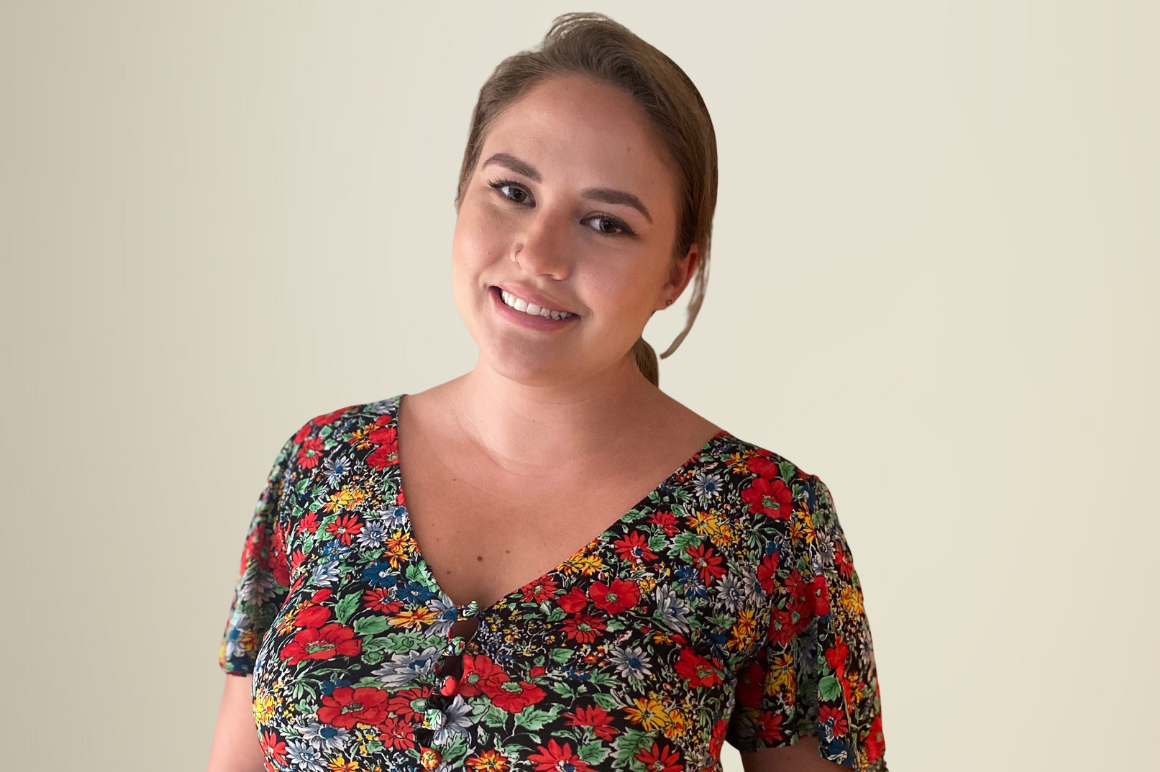Working Towards Health Equity for Underrepresented Populations

August 2, 2021
A soon-to-be second-year graduate student at the Dornsife School of Public Health (DSPH), Sage Elise Krims, who uses she/her and they/them pronouns, is studying community health and prevention. After completing their undergraduate studies, they held various research positions. They have worked at Massachusetts General Hospital as a research coordinator on a medication treatment study of youth with bipolar disorder and substance use disorder, the AIDS Action Committee as a bilingual field interviewer for a behavioral health survey, and at Harvard University as a faculty assistant.
In order to continue to advance in their career, Krims chose to pursue their master’s in public health (MPH) at DSPH. They wanted to learn how to best formulate and implement programing that is culturally responsible and effective by partnering with community leaders to provide better access and care for marginalized communities.
After being admitted to the School, Krims learned they were accepted into the Dornsife Public Health Research Fellowship. Through the fellowship, Krims was paired with Randall Sell, ScD, professor of community health and prevention at DSPH, as their faculty mentor.
Together, Krims and Sell coauthored “Structural Transphobia, Homophobia, and Biphobia in Public Health Practice: The Example of COVID-19 Surveillance” in the American Journal of Public Health (AJPH) on June 10, 2021. This analytic essay reviews United States’ public health surveillance systems in the time of COVID and how disease reporting fails the LGBTQ+ community. “This failure has come about because of the haphazard and disorganized way disease reporting data are collected, analyzed, and reported in the United States, and the structural homophobia, transphobia, and biphobia acting within these systems,” the essay states.
Their work not only brings awareness to this issue, but it also outlines recommendations to address it.
Krims is committed to shining a light on the many health disparities that the LGBTQ+ community faces and using their training to develop and implement solutions. “I have always been passionate about health as a human right, and as a queer person I take pride in my ability to highlight injustices facing sexual and gender minorities through my research,” they said. “We can use the power of data to influence policy and work towards health equity.”
Krims is working on completing their Applied Practical Experience, a practicum component of the DSPH MPH program, at the Philadelphia Center Against Sexual Violence this summer. In addition to designing health communication materials and conducting community outreach, they are conducting a literature review and formative assessment of an ongoing survey for Philadelphia residents that will help to highlight the needs and challenges of sexual assault survivors and identify potential obstacles and/or gaps in response to survivor services in the city. “Ideally, this will influence future funding and policy in order to better serve survivors of sexual violence,” they said.
In the future, Krims hopes to work at a non-profit organization or department of public health conducting community education, outreach, and health communications to connect queer and immigrant populations to better access and care. They plan to build on their experience at Drexel and undergraduate degree in Latin American Studies and Spanish to focus on sexual health as well as sexual violence prevention in their career.